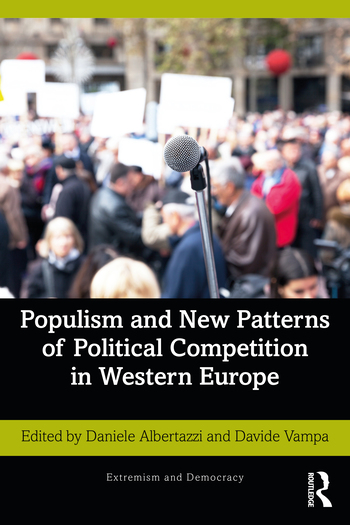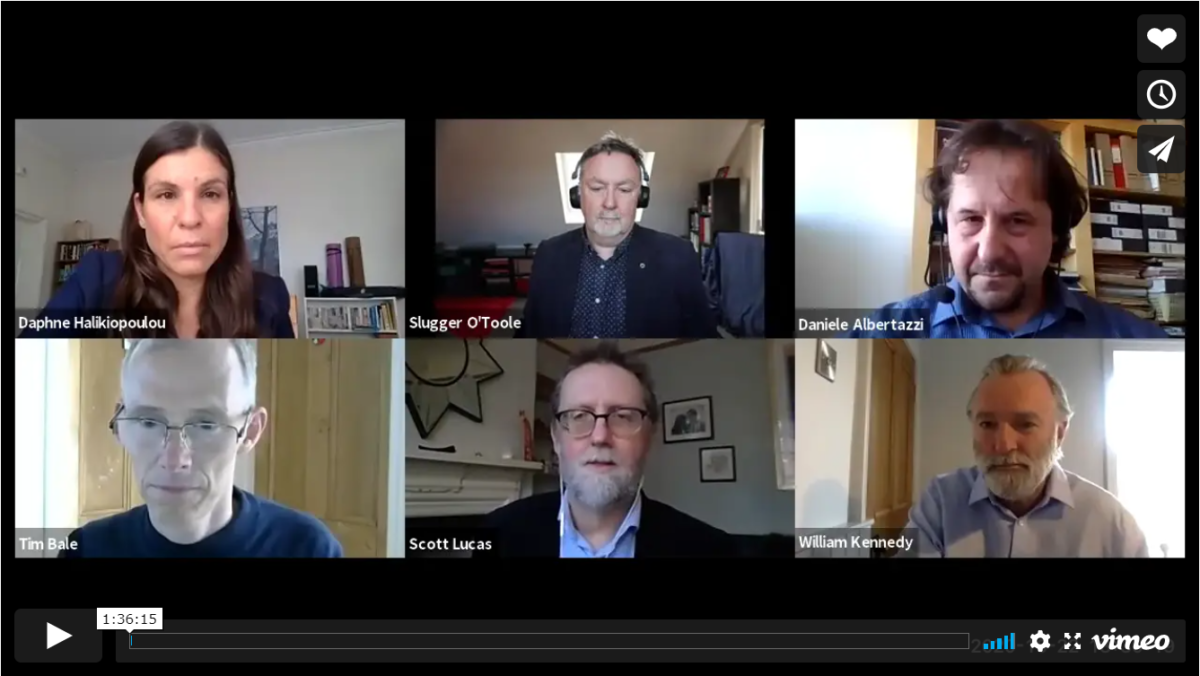by Anna-Sophie Heinze – this post originally appeared on EA Worldview
Populist radical right parties are far from “new” challengers – yet dealing with them will remain a difficult balancing act into the future for other parties, media actors, and civil society.
Have a look at Germany.
Alternative für Deutschland (AfD) – only founded in 2013 – has succeeded in where far-right parties in the country (such as the extremist NPD, DVU, or Republicans) had always failed. AfD has entered all 16 state parliaments, the German Bundestag, and the European Parliament. Since then, it has put pressure on the established parties.
All parties have lost voters to the AfD, especially the Christian Democratic Union (CDU) but also the Social Democrats and the Left Party in Eastern Germany. The reasons range from a general loss of trust in political parties to the representation gap of conservative voters since the CDU moved to the left under Chancellor, Angela Merkel, a gap which became particularly apparent over the admissions of refugees into Germany. From a strategic point of view, these parties will strive to win back the trust of voters and strengthen their position of power.
But the AfD is not an “ordinary” challenger party. Instead, it constantly challenges the principles of liberal democracy outside Parliament, whilst its legislators keep breaking formal and informal rules in Parliament, arguing they are the sole representatives of the interests of “the people”.
The AfD often presents itself as the only hardworking party that “sits” in Parliament (in the literal sense of being present during sessions), addressing issues which it says are avoided by the other parties. The party communicates this through pictures in its social networks, such as Facebook and Twitter, by showing its MPs alongside empty chairs that should be occupied by the other parties — although, in most cases, these photos are taken before the Parliamentary debates begin.
The AfD is an unpredictable actor in Parliament, illustrated by the voting record of its MPs. For example, in the State Parliament of Saxony-Anhalt in September 2020, the AfD voted in favour of a motion by the Left Party, with whom it shares the opposition benches. The motion gained a surprise majority because many members of the coalition factions (CDU, SPD, Greens) had already left the plenary hall. Similarly, the AfD surprisingly voted for Thomas Kemmerich (FDP) as Minister President of Thuringia at the start of 2020, causing outcry both nationally and internationally.
With this strategy, the AfD clearly challenges the rules that have shaped Parliamentary practice in Germany. For instance, much legislative work takes place in committees and not during plenaries. This means that, in the plenary sessions, the parties vote on compromises that have been reached before, while maintaining the majority balance between government and opposition.
However, the AfD barely engages in committee work, instead using Parliament as a stage. In the chamber, it tries to provoke divisive debates with strong rhetoric and provocation. It then depicts itself as the “victim” of the corrupt “old parties” when they react. This is sometimes conveyed to the electorate through edited videos of debates, circulated through social media.
It is difficult for established parties to engage with this type of populist functional logic. If they ignore or exclude the AfD they play into the hands of their anti-establishment mobilisation. However, if they treat the party as a “normal” challenger party, they run the risk of legitimizing and normalizing its positions.
So the established parties have to deal with the issues on which the AfD focuses without being constantly provoked. On the one hand, they must be responsive, solving increasingly complex problems and explaining their decisions in public. On the other, they must try to maintain established parliamentary procedure and political practice, including the boundaries of acceptable political discourse and rhetoric.
It is a challenge for the established parties to counter this trend in Parliament. It will be an even greater challenge as the AfD’s messages spread quickly in the extra-parliamentary sphere.





